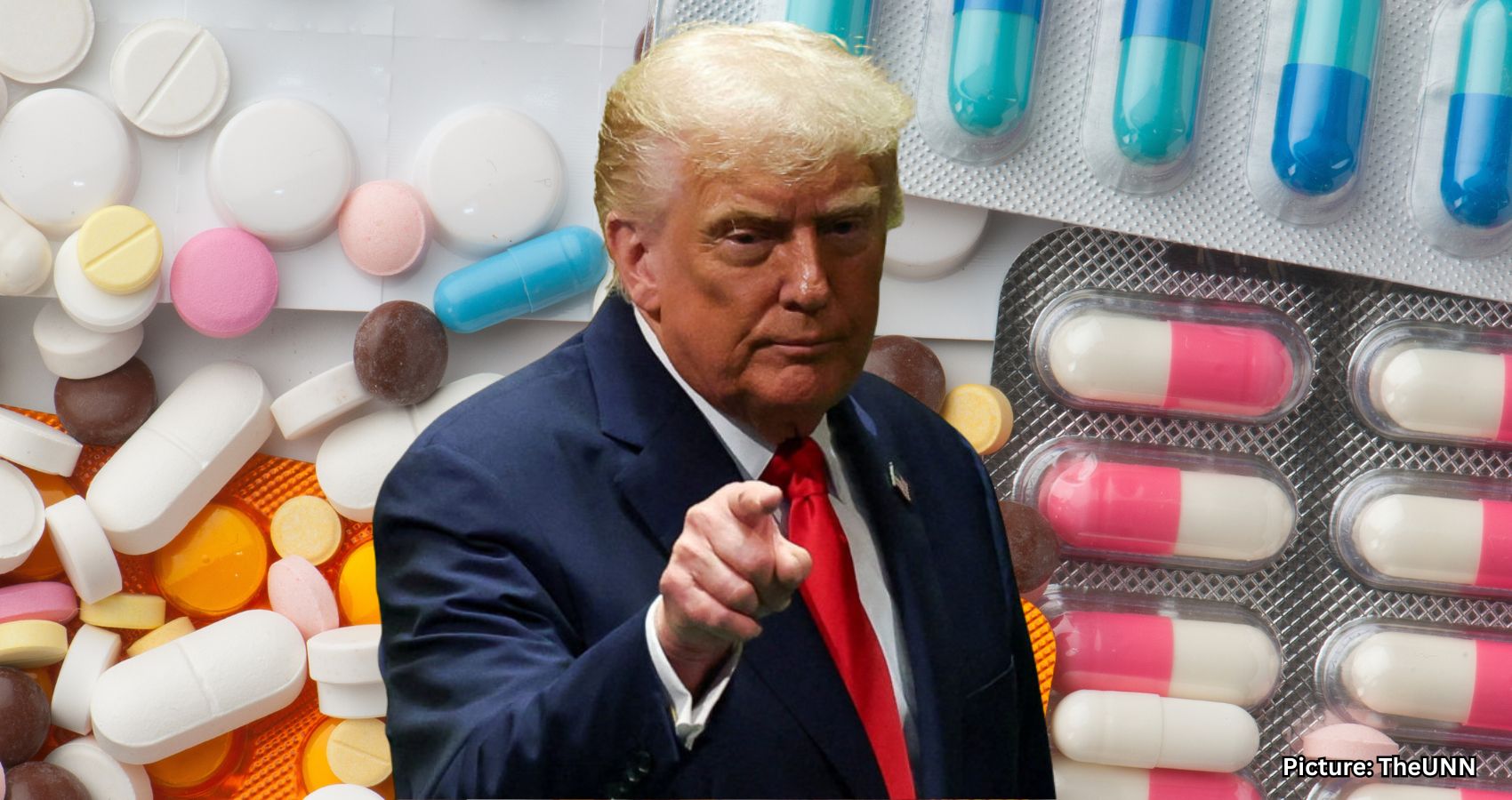President Donald Trump has announced new tariffs on pharmaceutical imports, escalating trade tensions and reshaping U.S. economic policy while pressuring allies like India over oil imports.
President Donald Trump is intensifying his tariff strategy, recently unveiling a new wave of tariffs that includes a staggering 100% levy on branded or patented drug imports, effective October 1. This move is contingent on companies establishing manufacturing facilities in the United States.
In 2025, tariffs have become a cornerstone of Trump’s economic agenda, with significant increases in trade duties enacted under Section 232 of the Trade Expansion Act. Earlier this year, Trump reinstated and expanded tariffs on steel and aluminum imports, raising rates to 50% and eliminating exemptions for specific countries.
These tariffs, justified on national security grounds, now encompass a wider array of downstream metal products. In July, Trump also imposed new 50% tariffs on copper and copper-based goods, again citing national security concerns. However, this appears to be just the beginning of his aggressive tariff policies.
In addition to pharmaceuticals, the administration plans to impose a 25% import tax on all heavy-duty trucks and a 50% levy on kitchen and bathroom cabinets. Trump stated that these measures are necessary due to the “large scale ‘FLOODING’ of these products into the United States by other outside countries,” emphasizing the need to protect U.S. manufacturers.
Neil Shearing, chief economist at Capital Economics, commented that the tariff announcement regarding pharmaceuticals may not be as significant as it initially seems. He noted that many of the world’s largest pharmaceutical companies either already have production facilities in the U.S. or have announced plans to establish them in the near future.
William Bain, head of trade policy at the British Chambers of Commerce, echoed this sentiment, stating that leading pharmaceutical companies in the UK have committed to substantial investments in the U.S., particularly in advanced manufacturing. He believes this commitment should shield them from any new duties.
The tariffs on heavy-duty trucks are intended to protect U.S. manufacturers from what Trump describes as “unfair outside competition.” The new duties on kitchen and bathroom cabinets, along with other furniture, are a response to high import levels that have adversely affected local manufacturers.
Trump’s aggressive tariff strategy is also placing India in a difficult position. According to a Bloomberg report, Indian officials, during their recent visit to the U.S., reiterated their concerns to the Trump administration regarding oil imports. They indicated that a significant reduction in Russian oil purchases by Indian refiners would require Washington’s approval for crude imports from Iran and Venezuela, both of which are currently under U.S. sanctions.
Faced with a 25% additional penal tariff on its crude trade with Russia, India has requested the U.S. to permit oil imports from Iran and Venezuela.
By imposing steep tariffs on a wide range of imported goods—including steel, aluminum, copper, pharmaceuticals, heavy trucks, and household furniture—Trump’s administration aims to protect domestic industries deemed vital for national security and economic resilience. These measures are designed to reduce reliance on foreign suppliers, encourage the onshoring of manufacturing, and safeguard American jobs from what Trump characterizes as unfair foreign competition and an influx of inexpensive imports.
While some industry experts argue that sectors like pharmaceuticals may be less affected due to existing or planned U.S. production, the overall approach indicates a more aggressive stance on global trade relations. This policy could lead to increased costs for consumers and businesses reliant on imported materials, but it also incentivizes investment in U.S. manufacturing capabilities.
The situation with India highlights the broader complexities and potential unintended consequences of aggressive tariff policies. While these measures are aimed at protecting domestic industries and enhancing national security, they can disrupt established global supply chains and create tensions with key allies. Countries like India, caught between adhering to U.S. trade regulations and addressing their own economic needs, may seek exemptions or negotiate terms to mitigate economic challenges.
Source: Original article

